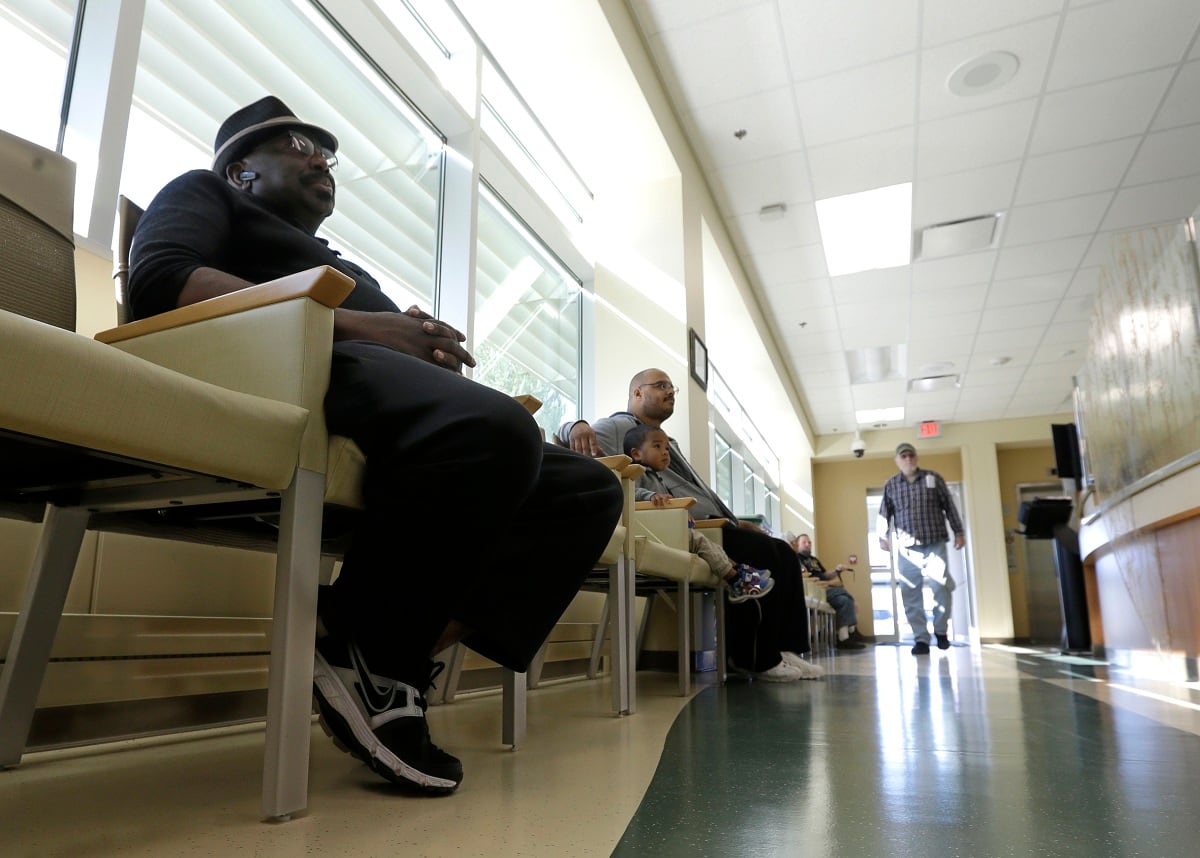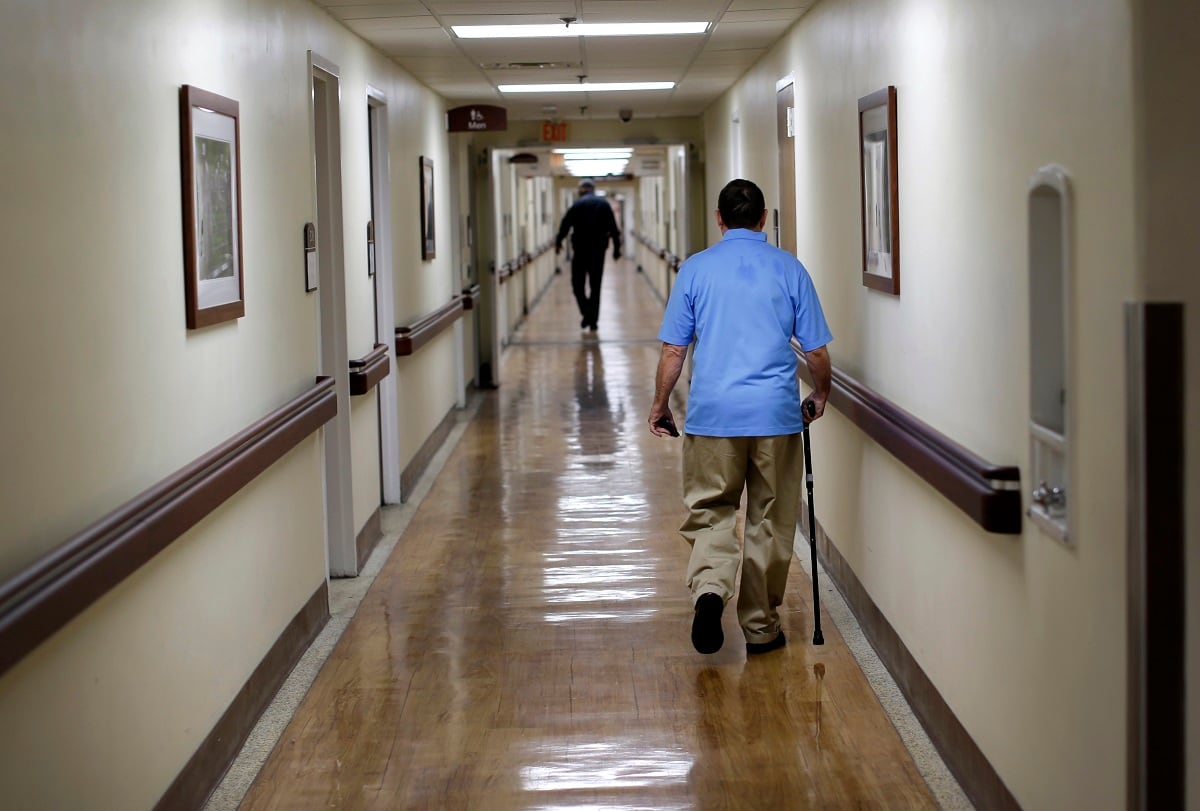WASHINGTON — Rep. Mark Takano doesn’t see President Donald Trump as an enemy to veterans. But he isn’t sure if the administration is a reliable friend to them, either.
“Democrats aren’t out to come out with a pelt, say we’ve driven a secretary out of office. Our intention is to mend, not end, VA,” the incoming chairman of the House Veterans’ Affairs Committee told Military Times in a recent interview.
“But I don’t know if VA is in a better place today than a year ago. The secretary has only been in place for five months. We’re parsing his words … I’m looking to see if he really wants to work together, or if he is going to pursue an ideologically driven agenda.”
Takano, 58, takes over the committee next month amid a tumultuous time for the House of Representatives and the Department of Veterans Affairs. Control of the former is switching parties for the first time in eight years. The latter is on its fourth secretary since the start of 2014, and been embroiled in multiple leadership scandals over the last year.
RELATED

That makes Takano, the former British literature teacher turned four-term California congressman, a key figure in coming months as Democrats look to deliver on their promise of more oversight for Trump’s policies and administration.
For his part, Takano is promising to continue the committee’s tradition of bipartisanship, saying he won’t be issuing subpoenas or demanding witnesses without the backing of his Republican counterparts on the committee. He expects continued harsh questions for VA from the new minority members on recent technology and GI Bill payment errors.
But he is also promising “more vigorous oversight” in the months ahead as the new chairman, saying the committee must press harder on the department to ensure veterans are being given the best opportunities to succeed in post-military life.
“Democrats, we’re mindful of making government work,” he said. “Republicans in recent years, ideologically, have been wired to discredit government, to highlight failures and use that as an excuse to outsource everything. That’s an extreme position.
“If there is an agenda on (VA Secretary Robert Wilkie’s) part to put us on a path to privatization, he’s the one who is going to be an adversary, not just to me but to veterans.”
Takano’s vision for the department includes more staffing at VA hospitals and more funding for upgrades to existing department facilities. During a recent hearing with Wilkie on Capitol Hill, he chastised the department for “slow-walking” efforts to fill more than 41,000 vacant department posts, an area where Wilkie and other top officials have insisted they are making progress.
“This is a case by doing right by veterans will also do right by the country,” he said. “Solving staffing problems at VA is also going to mean solving the medical workforce development issues for the country.”
But some of those efforts appear to be in opposition to administration plans for expanding VA community care plans, shifting resources to private-sector doctors. Wilkie has repeatedly insisted the moves do not amount to privatizing VA health care. Takano has his doubts.
“VA has always been referring people to the private sector,” he said. “It is a question of balance. Are we going to see administrative gamesmanship to emphasize private sector care and neglect the vacancies inside VA? Are we going to neglect updating physical infrastructure of VA facilities?”
“I still don’t know what direction the secretary is taking.”
At that December hearing, Wilkie outlined broad parameters for upcoming rule changes for community care programs mandated under the VA Mission Act, signed into law last summer and repeatedly lauded by Trump.
Takano has promised a close watch on those rules. While Republicans have pushed for looser policies to ensure easier access to outside doctors, Takano and his Democratic colleagues have warned that too open guidelines could erase VA’s role as the central care coordinator for veterans, a goal spelled out in the legislation.
RELATED

“What we do know (from recent studies) is that VA health care is on par with, if not better than, private sector care,” he said. “The problem is access to that care. So let’s work on access to that care, enhanced internal capacity.
“I don’t mind working in tandem with greater efficiencies with the Choice program. But I want to remind Secretary Wilkie that the veterans’ first choice is VA health care, and that has to be strengthened and enhanced. Access to that care needs to be greatly improved.”
RELATED

That fight should start becoming clearer in coming weeks. Wilkie has promised the new system will be in place by the June deadline outlined in the law, and that details of the new community care rules will be presented to lawmakers early in 2019.
Meanwhile, Takano also has his eye on hearings to monitor progress with improvements to GI Bill payouts, the department’s promised new electronic medical records system, suicide prevention programs and efforts to end veterans homelessness. He expects most of that work to be driven by bipartisan interest in improving the department.
“I want to preserve the sacred bipartisan space we have on this committee,” he said. “I’m not on a trajectory to oppose this administration as a mission. But my mission is to do right by veterans.”
Leo covers Congress, Veterans Affairs and the White House for Military Times. He has covered Washington, D.C. since 2004, focusing on military personnel and veterans policies. His work has earned numerous honors, including a 2009 Polk award, a 2010 National Headliner Award, the IAVA Leadership in Journalism award and the VFW News Media award.





